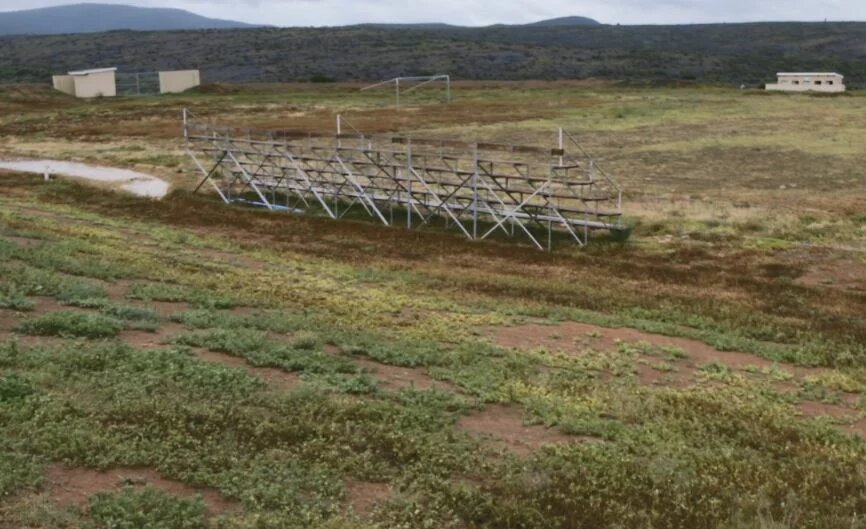Fighting for a say of how the public coffers must be best used to benefit their community. This is the issue at the heart of a democratic fight, that has been long and is still on going.

The community of Glenmore situated in Ngqushwa local municipality saw the beating heart of their community die before their eyes as the local municipality saw it fit to ‘upgrade’ their community sports field, at a cost of R2.4 million; “…promising the community that they would revamp and build a better stadium.”. Those were the words of Masixole Kente, Professional Officer of an Eastern Cape NGO known as Afesis-Corplan. They work on developing participatory democracy in the province. During the municipality’s integrated development plan consultation meetings, residents had outlined more urgent needs such as houses and flushing toilets.
For four months, in 2016, the field was shut down while the ‘revamp’ took place, with a local contractor being brought in to build change rooms, upgraded sports field and a concrete basketball court. “What was built on the ground, was not what was planned in the service delivery agreement…” says Masixole. Sub-par sports field with a gravel strewn track, in addition to unusable changing rooms. An independent engineer hired by Afesis-Corplan and The Social Audit Network, Momelezi ‘Tim’Vellem assessed, “They’ve used 140-millimetre blocks and they have 230-millimetre wall specified…your difference in cost is massive…”.
Forging a way to address corruption and mismanagement is never an easy one. The community was divided between taking a more calm and methodical approach, with the younger members opting for more radical approaches against the municipality. All while the sports field remained unused with the municipality denying the community entry. Lindokuhle Vellem, Professional Officer at Afesis-Corplan comments, “After spending the whole day, yesterday, trying to get the key to open the sports field. We decided to cut the chain…”. All while the community descends into a plague of crime and sexual violence as a result of idle minds. The closest major towns are a R35 and R25 trip away, and unemployment is rife. Activating the community to fight for their rights was the only way forward. Masixole comments, “We have conducted a social audit which is going around the community and getting testimonies in terms of, how does the stadium that has been delivered…. affect their livelihoods.”.
However, the failure of the municipality to listen to its residents, haunted the community once again in December 2017. The council decided to demolish the work that has been done, only to be met with resistance from the residents. They protested at the lack of consultation on the side of municipality once again. Four months have gone by since then and no information has been forthcoming from the municipality. Afesis-Corplan has assisted the community by enlightening them on the use of muniivpal documentation to hold the local government accountable. “…it’s all about giving capacity, training and ensuring that in the end the community has the knowledge and is able to engage government…”, comments Masixole Kente.
The municipality, to this day, refuses to speak or comment on the matter as well as the contractors who were hired to carry out the job.
This summary is based on an article written by Niren Tolsi for the Mail & Guardian in addition to comments and quotes extracted from a short film on the Accounting for Basic Services Project. The original article can be found at: https://mg.co.za/article/2018-05-11-00-local-officials-destroy-the-fiel…